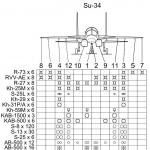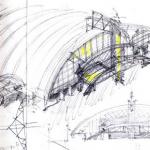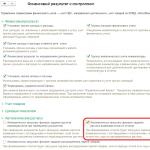What do foremen do at a construction site? Foreman - what kind of profession is this? Responsibilities of the foreman. What professional skills does the employer want to see?
When choosing a profession, a person must clearly understand what it is, and also have a complete understanding of what knowledge and effort it will require from him. But sometimes people have the wrong idea about a particular specialty. For example, in construction there is such a position - foreman. Who is this? What does he do and what issues does he solve?
The essence of the profession
You can start the discussion with the name. Often the main meaning lies in it. What does the name of the profession “foreman” mean? This is most likely a person who knows everything about the job. Dictionaries interpret this somewhat differently. By definition, a “foreman” is literally understood as a performer of some kind of work on the construction or construction of something. He belongs to the category of leaders. From here it is clear that under his subordination is a team of people who directly carry out these very works. In short, a foreman is a person who, due to his duties, directly supervises the construction of a certain object on a separate site. Therefore, its competence includes:
- organization of the production process,
- accounting of work performed by the team,
- monitoring compliance with construction deadlines,
- organization of work on the site entrusted to him, aimed at fulfilling the task assigned by the construction management: commissioning.
What you need to know
The foreman is ultimately responsible for the quality of work performed by each of his subordinates. This presupposes that he has specific professional skills. In other words, the manager must have a good understanding and be able to do the work of any of his employees himself. Of course, he should not work instead of them, but he must understand and understand what they do. Otherwise, it will be difficult for him to exercise control over them. Perhaps that is why each of the foremen has many years of experience behind them. After all, the most work is usually carried out on the site different types electrical installation, finishing, laying various types of communications and others. And the leader must understand each of them. In addition, he must also know:
- Technology and organization of work in construction.
- Procedure
- Labor legislation. HSE, HSE, TB and industrial sanitation rules.
- Construction standards and work rules.
- Existing standards for commissioning, commissioning and acceptance of work performed.
- Basic economic concepts.
- The order of relationships between customers and contractors (subcontractors).
As a result, it turns out that the foreman is a unique middle manager.

What does a foreman do?
The most difficult thing to list is the responsibilities of a foreman. They are twofold. For his subordinates, he is a leader who monitors everything that is happening on his site. And for his superiors, he is a person who bears full responsibility for the work assigned to him. As a result, a rather capacious and heavy load falls on the foreman’s shoulders. Based on the drawn up design documentation, he must plan on site each stage of the work performed and monitor its implementation. To do this, he needs to constantly monitor the availability, as well as timely deliveries of raw materials. He must provide building object personnel and bear full responsibility for each of them. In addition, the foreman is obliged to create the necessary working conditions at the site that meet all norms and rules. After all, now it is he who will be responsible for the health of each employee for the entire construction period. He is also directly involved in calculating salaries for all of them. The foreman must organize work at his site in such a way as not to violate the deadlines approved. He is also responsible for this. Among other things, the foreman’s responsibilities also include drawing up documentation to record work performed and current scheduled reporting. So it turns out that any object turns out exactly as the foreman sees it.

Closest Assistant
Managers at different levels take part in organizing the construction process. The foreman reports directly to the construction manager. But he alone would never be able to resolve all issues so quickly. For these purposes, there is a unit of a master on staff to assist him. He is not just a subordinate, but a kind of right hand and faithful assistant. The foreman takes on the responsibility of preparing the work front. He must: study the drawings, draw up orders, place people in jobs and provide them with everything they need. The task is not easy. And who will be responsible for possible deficiencies or violations of existing standards? Master again. The foreman only organizes the process as a whole. And it is the foreman and his subordinate foreman who deal with specific issues on the ground. It is the foreman who is responsible for everything that happens on the site. And in addition, he also carries material and criminal liability for all his subordinates. If a brick falls on a worker’s head or he commits theft, then the foreman will have to answer for this.

Requirements for a foreman
A person applying for the position of foreman, in addition to specialized education and specialty, must also have the following: necessary qualities as high efficiency, self-organization, ability to work with people. He should not be afraid of responsibility. After all, this is his job. The foreman, among other things, must be partly an economist and accountant, partly a personnel officer and lawyer. He must be able to plan everything well: work, materials, performers. He will also need scheduling skills. In addition, he must be able to communicate correctly with people and be as sociable as possible. It is necessary to strive to ensure that his subordinates respect him, and not fear him. The ability to conduct a conversation correctly and unobtrusively defend one’s point of view will provide indispensable assistance to such a specialist in conversations with customers and conversations with management. Even appearance and his demeanor should show him to be an irreplaceable organizer and a good professional.

In life as in production
Every person faces construction problems at least once in their life. Take, for example, the most common repair. If the matter concerns only wallpapering or painting floors, then outside help may not be needed. But those who have decided to renovate their living space “on a grand scale” will certainly need the help of a specialized organization. It could be a small private company or big company, engaged individual orders. In any case, the work on a specific site will be supervised by a construction foreman. This is a person who, on behalf of the company, takes responsibility for ensuring that the work specified in the contract will be completed at the proper level and within the approved time frame. He leads a team of workers, each of whom performs a specific function. In this case, the foreman does not just hand over the work and sign the documents. He organizes the work and can, if necessary, give professional advice any of the workers. Such a leader is simply necessary in this particular situation. And if necessary, he will explain to the customer all the points that interest him.
Qualification directory for positions of managers, specialists and other employees
(approved by Resolution of the Ministry of Labor of the Russian Federation dated August 21, 1998 N 37)
Work foreman (foreman)
Job responsibilities. Manages the production and economic activities of the site. Ensures the fulfillment of production tasks for putting facilities into operation on time and completing construction, installation and commissioning works for all quantitative and quality indicators in compliance with work plans. Organizes construction and installation work in accordance with project documentation, building codes and rules technical specifications and others regulatory documents. Ensures compliance carrying out construction and installation work on the site. Carries out measures to increase the level of mechanization of work, introduce new equipment, improve labor organization, reduce the cost of construction, installation and commissioning work, and economical use of materials. Carries out work to disseminate advanced techniques and methods of work. Provides technical documentation for the construction of facilities. Prepares requests for construction machinery, transport, mechanization, materials, structures, parts, tools, equipment and ensures their effective use. Keeps records of work performed and prepares technical documentation. Participates in the delivery to customers of completed construction projects, individual stages and complexes of work on newly commissioned facilities. Prepares the scope of work for subcontractors (specialized) organizations and participates in the acceptance of completed work from them. Issues permits for the right to carry out work in protected zones. Sets production tasks for the foremen regarding the volume of construction, installation and commissioning work, and monitors their implementation. Instructs workers directly at the workplace on safe methods of performing work. Ensures the use of technological equipment (scaffolding, scaffolding, protective devices, fastening the walls of pits and trenches, struts, conductors and other devices), construction machines, power plants, Vehicle and protective equipment for workers. Ensures compliance with the rules for carrying heavy loads, cleanliness and order in workplaces, aisles and access roads, proper maintenance and operation of crane tracks, and provision of workplaces with safety signs. Organizes on-site warehousing and protection of material assets. Monitors the state of safety regulations and takes measures to eliminate identified deficiencies and violations of rules industrial sanitation, compliance by workers with labor protection instructions. Ensures that employees comply with production and labor discipline, makes proposals for imposing
disciplinary sanctions organizational and administrative documents and regulatory materials of higher and other bodies relating to the production and economic activities of the site (facility); organization and technology of construction production; design and estimate documentation for facilities under construction; building codes and regulations, technical conditions for the production and acceptance of construction, installation and commissioning works; forms and methods of production and economic activity at the site (facility); standards and prices for work performed; legislative and regulatory legal acts on remuneration; order of economic and financial relationships contractor organization with customers and subcontractors; production and technological equipment and dispatch system construction organization; scientific and technical achievements and experience of the organization construction production; basics of economics,
organization of production, labor and management; labor legislation; internal labor regulations; rules and regulations of labor protection.
Qualification requirements. Higher vocational (technical) education and work experience in construction in engineering positions for at least 3 years or secondary vocational (technical) education and work experience in construction in engineering positions for at least 5 years. Single
qualification directory
positions of managers, specialists and other employees (EKS), 2019 Qualification directory for positions of managers, specialists and other employees Sections « Industry-wide qualification characteristics of positions of workers employed in enterprises, institutions and organizations" And "», Qualification characteristics positions of workers employed in research institutions, design, technological, design and survey organizations
approved by the Resolution
Ministry of Labor of the Russian Federation dated August 21, 1998 N 37
Job responsibilities. Manages the production and economic activities of the site. Ensures the fulfillment of production tasks for putting objects into operation on time and performing construction, installation and commissioning work in accordance with all quantitative and qualitative indicators in compliance with work plans. Organizes construction and installation work in accordance with design documentation, building codes and regulations, technical specifications and other regulatory documents. Ensures compliance with the technological sequence of construction and installation work on the site. Carries out measures to increase the level of mechanization of work, introduce new equipment, improve labor organization, reduce the cost of construction, installation and commissioning work, and economical use of materials. Carries out work to disseminate advanced techniques and methods of work. Provides receipt technical documentation for the construction of facilities. Prepares requests for construction machinery, transport, mechanization, materials, structures, parts, tools, inventory and ensures their effective use. Keeps records of work performed and prepares technical documentation. Participates in the delivery to customers of completed construction projects, individual stages and complexes of work on newly commissioned facilities. Prepares the scope of work for subcontractors (specialized) organizations and participates in the acceptance of completed work from them. Issues permits for the right to carry out work in protected zones. Sets production tasks for the craftsmen regarding the volume of construction, installation and commissioning work, and monitors their implementation. Instructs workers directly at the workplace on safe methods of performing work. Ensures the use of technological equipment (scaffolding, scaffolding, protective devices, fastening the walls of pits and trenches, struts, conductors and other devices), construction machines, power plants, vehicles and protective equipment for workers. Ensures compliance with the rules for carrying heavy loads, cleanliness and order in workplaces, aisles and access roads, proper maintenance and operation of crane tracks, and provision of workplaces with safety signs. Organizes on-site warehousing and protection of material assets. Monitors the state of safety regulations and takes measures to eliminate identified deficiencies, violations of industrial sanitation rules, and compliance by workers with labor protection instructions. Ensures that employees comply with production and labor discipline, makes proposals to impose disciplinary sanctions on violators. Provides assistance to innovators. Organizes work to improve the skills of workers and carries out educational work a team.
disciplinary sanctions organizational and administrative documents and regulatory materials of higher and other bodies relating to the production and economic activities of the site (facility); organization and technology of construction production; design and estimate documentation for facilities under construction; building codes and regulations, technical conditions for the production and acceptance of construction, installation and commissioning works; forms and methods of production and economic activity at the site (facility); standards and prices for work performed; legislative and regulatory legal acts on remuneration; the procedure for economic and financial relationships between the contracting organization and customers and subcontractors; system of production and technological configuration and dispatching of a construction organization; scientific and technical achievements and experience in organizing construction production; fundamentals of economics, organization of production, labor and management; basics of labor legislation; internal rules labor regulations; rules and regulations of labor protection.
organization of production Higher vocational (technical) education and work experience in construction in engineering positions for at least 3 years or secondary vocational (technical) education and work experience in construction in engineering positions for at least 5 years.
Download the job description for a foreman(.doc, 69KB)I. General provisions
- The work manager (foreman) belongs to the category of managers.
- A person with a higher professional (technical) education and work experience in construction in engineering and technical positions of at least 3 years or secondary vocational (technical) education and work experience in construction in engineering and technical positions of at least 5 years.
- Appointment to the position of work producer (foreman) and dismissal from it is carried out
- The work manager (foreman) must know:
- 4.1. Organizational and administrative documents and regulatory materials of higher and other bodies relating to the production and economic activities of the site (facility).
- 4.2. Organization and technology of construction production.
- 4.3. Design and estimate documentation for objects under construction.
- 4.4. Construction codes and regulations, technical conditions for the production and acceptance of construction, installation and commissioning works.
- 4.5. Forms and methods of production and economic activity at the site (facility).
- 4.6. Standards and prices for work performed.
- 4.7. Legislative and regulatory legal acts on remuneration.
- 4.8. The procedure for economic and financial relationships between the contracting organization and customers and subcontractors.
- 4.9. System of production and technological configuration and dispatching of a construction organization.
- 4.11. Scientific and technical achievements and experience in organizing construction production.
- 4.12. Fundamentals of economics, organization of production, labor and management.
- 4.13. Labor legislation.
- 4.14. Internal labor regulations.
- 4.15. Rules and regulations of occupational health, safety, industrial sanitation and fire protection.
- During the absence of the work manager (illness, vacation, business trip, etc.), his duties are performed by a person appointed in the prescribed manner. This person acquires the corresponding rights and is responsible for the proper performance of the duties assigned to him.
II. Job responsibilities
Work foreman (foreman):
- Manages the production and economic activities of the site.
- Ensures the fulfillment of production tasks for putting objects into operation on time and performing construction, installation and commissioning work in accordance with all quantitative and qualitative indicators in compliance with work plans.
- Organizes construction and installation work in accordance with design documentation, building codes and regulations, technical specifications and other regulatory documents.
- Ensures compliance with the technological sequence of construction and installation work on the site.
- Carries out measures to increase the level of mechanization of work, introduce new equipment, improve labor organization, reduce the cost of construction, installation and commissioning work, and economical use of materials.
- Carries out work to disseminate advanced techniques and methods of work.
- Provides technical documentation for the construction of facilities.
- Prepares requests for construction machinery, transport, mechanization, materials, structures, parts, tools, inventory and ensures their effective use.
- Keeps records of work performed and prepares technical documentation.
- Participates in the delivery to customers of completed construction projects, individual stages and complexes of work on constructed facilities.
- Prepares the scope of work for subcontractors (specialized) organizations and participates in the acceptance of completed work from them.
- Issues permits for the right to carry out work in protected zones.
- Sets production tasks for the craftsmen regarding the volume of construction, installation and commissioning work, and monitors their implementation.
- Instructs workers directly at the workplace on safe methods of performing work.
- Ensures the use of technological equipment (scaffolding, scaffolding, protective devices, fastening the walls of pits and trenches, struts, conductors and other devices), construction machines, power plants, vehicles and protective equipment for workers.
- Ensures compliance with the rules for carrying heavy loads, cleanliness and order in workplaces, aisles and access roads, proper maintenance and operation of crane tracks, and provision of workplaces with safety signs.
- Organizes on-site warehousing and protection of material assets.
- Monitors the state of safety regulations and takes measures to eliminate identified deficiencies, violations of industrial sanitation rules, and compliance by workers with labor protection instructions.
- Ensures that employees comply with production and labor discipline, makes proposals to impose disciplinary sanctions on violators.
- Provides assistance to innovators.
- Organizes advanced training for workers and conducts educational work in the team.
III. Rights
The work performer (foreman) has the right:
- Get acquainted with the draft decisions of the director of the organization relating to his activities.
- Submit proposals for improvement of work related to the responsibilities provided for in these instructions for consideration by management.
- Within your competence, inform your immediate supervisor about all identified during the implementation process job responsibilities shortcomings in the activities of the organization (its structural divisions) and make proposals for their elimination.
- Interact with managers of all (individual) structural divisions organizations.
- Sign and endorse documents within your competence.
- Require the director of the organization to provide assistance in the performance of his official duties and rights.
IV. Responsibility
The work manager (foreman) is responsible for:
- For improper performance or failure to fulfill one’s official duties under this job description, - within the limits determined by the current labor legislation Russian Federation.
- For offenses committed in the course of carrying out their activities - within the limits determined by the current administrative, criminal and civil legislation of the Russian Federation.
- For causing material damage- within the limits determined by the current labor and civil legislation of the Russian Federation.





